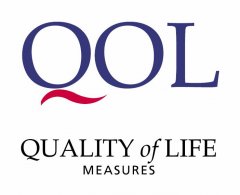 2011 Annual Report
2011 Annual Report
 2011 Annual Report
2011 Annual Report
2010 Annual Report
The Evolution Institute connects the world of evolutionary science to the world of public policy formulation. For any given policy issue, we bring evolutionary experts together with other experts for a respectful and constructive dialogue, resulting in a new agenda for basic scientific research, policy formulation, and policy implementation. We have a rapidly expanding portfolio of projects, from early childhood education to the worldwide economy, and we welcome new partnerships with both individuals and organizations.
Thanks to Jerry Lieberman's guidance, we expect to receive 501c3 status in early 2011 and will be formalizing our organizational structure in terms of an executive board and a number of advisory boards.
We are delighted to announce that Peter Turchin has joined the EI as Vice President. Peter is Professor of Ecology and Evolutionary Biology with a joint appointment in Mathematics at the University of Connecticut. In addition to his distinguished career in mainstream evolutionary science, he is pioneering the quantitative study of human history in books such as War and Peace and War: The Rise and Fall of Empires, Historical Dynamics: Why States Rise and Fall , and Secular Cyles (with Segey Nefedov). Peter’s expertise nicely complements my own in the selection and development of focal projects, including a new project on failed states and nation building that will be described in more detail below.





For all of our focal projects, we expect to stay involved over the long term to help implement the research and policy recommendations that emerge from the initial workshops. Our first workshop on early childhood education (held November 2008) inspired Bruce Ellis, who holds the John & Doris Norton Endowed Chair in Fathers, Parenting and Families at the University of Arizona, to organize a similar workshop with us on the topic of risky adolescent behavior (held October 2009), which is now being written up as a special section of the journal Developmental Psychology.
A partnership with the National Evolutionary Synthesis Center (NESCent), the National Science Foundation’s largest evolution-related center, is blossoming in a number of ways. A conference titled “The Nature of Regulation: How Evolution Can Inform the Regulation of Large-scale Human Social Interactions” (held November 2009) led to a contract with the University of Chicago Press for an anthology with original essays introducing each section titled Evonomics: Evolutionary Science as a New Foundation for Economic Theory and Policy. My co-editor for this project is Geoffrey Hodgson, one of the foremost authorities on evolution in relation to economics. For a preview of the new foundation, see Geoff’s recently publishedDarwin’s Conjecture: The Search for General Principles of Social and Economic Evolution (with ThorbjornKnudsen) and my 13-part series titled “Economics and Evolution as Different Paradigms” on my Evolution for Everyone blog.
Another outcome of the “Nature of Regulation” conference is a two-year project funded by NESCent that continues to explore economic theory and policy from an evolutionary perspective. Our first meeting was held in August 2010 and we will be adopting a case study approach, whereby the advantages of the evolutionary “toolkit”, as we are beginning to think about it, are respectfully compared to the toolkits offered by other theoretical frameworks for specific policy issues.
NESCent has also funded a second two-year project titled “Evolutionary Mismatch and What to Do AboutIt.” Adaptations to past environments can tragically malfunction when the environment changes. Myriad problems can be attributed to mismatch, not only for humans but for other species living in human-altered environments. Cultural adaptations can become mismatched in changing environments, just as much as genetic adaptations. We will thoroughly consider the problem of mismatch, starting with the scientific fundamentals and leading to practical recommendations for how to rigorously identify cases of mismatch and what to do about them on a case-by-case basis. This project will be coordinated with other NESCent projects on medicine and health from an evolutionary perspective, taking the EI in the direction of focal topics such as obesity and immune system dysfunctions.

A workshop titled “Evolution, Ethics, and Public Policy” will be held in late April 2011 in collaboration with the Prindle Institute for Ethics at DePauw University. This workshop is critical for the mission of the EI for two reasons. First, evolution became stigmatized in relation to human affairs in part because it was used to justify social inequality, leading to policies that are ethically highly problematic. It is important to be mindful of the past, to show that evolution is not inherently biased toward such policies, and in fact provides a strong argument for social equality. Second, one objective of the workshop is to create an infrastructure for examining the ethical implications of all the policy issues considered by the EI. The John Templeton Foundation has become interested in this project and will send a number of representatives to see if a “new evolutionary ethics” might become part of their mission to “serve as a philanthropic catalyst for discoveries relating to the Big Questions of human purpose and ultimate reality.”

Other workshops in the planning stages for 2011 include one on quality of life with a focus on the workplace and another on the cultural evolution of large-scale human societies with a focus on the modern problems of failed states and nation building. Funds have been raised for both projects and we are currently assembling the evolutionary expertise and venue.

Our influence is also becoming international, including trips to the UK, Iceland, Australia, and New Zealand during 2010. A workshop titled “Evolving the Future: An Exploration of How Evolutionary Thinking Can Inform Public Policy” was organized with philosopher of biology Paul Griffiths and held in Sydney, Australia in September 2010. The participants included Sir Peter Gluckman, New Zealand’s chief science advisor and authority on Darwinian medicine. This workshop will probably result in a project on obesity that not only will address this important subject from an evolutionary perspective, but will carefully examine how the evolutionary toolkit guides inquiry, compared to the toolkits provided by other theoretical frameworks.

My next trade book, titled The Neighborhood Project: Using Evolution to Improve My City, One Block at a Time, is finished and will be published by Little, Brown in the summer of 2011. It conveys the evolutionary paradigm to a broad audience, including the formation of the EI and several of its projects. Every author hopes that their book will become a best seller; in my case, I also have high hopes that The Neighborhood Project will attract widespread attention to the EI and its mission.
Message From the President:
I hope you agree that 2010 was a very good year! I will end this report by reflecting upon what the future holds in store for us.
When Jerry and I started the EI in 2007, the overriding question was whether evolutionary science had anything to contribute over the short term or if a long academic lag time would be required. After all, the human-related academic disciplines are only newly being approached from a modern evolutionary perspective. Major public policy issues such as health, education, social welfare and the economy have already received an enormous amount of attention from more established perspectives. Wasn’t it presumptuous to think that we could succeed merely by looking at these old problems in a new way? Reviewing our progress as of 2010, I am confident that evolutionary science can make a meaningful contribution to virtually any public policy issue from the very beginning—not only in terms of what it has already been discovered from an evolutionary perspective, but in terms of the theoretical and methodological toolkit that it offers for future inquiry.
Now the overriding question is how fast we can become a permanent organization with the capacity to fill a vast vacant niche. We have succeeded spectacularly at the level of single projects, both in terms of raising funds for workshops and the progress made on their basis. What we need, in addition, is to raise funds to hire a staff and to relieve Peter and me of some of our professorial duties so that we can concentrate on developing the EI to its full potential. Consider that there is currently no mechanism whatsoever to connect the world of evolutionary science to the world of public policy formulation. Consider further that there are powerful and well-funded organizations, such as the Discovery Institute, whose mission is to spread misinformation about evolution. If the EI could become an organization on a par with the Discovery Institute, the effect on general attitudes toward evolution would be transformative. It has been said that science is widely accepted as soon as it becomes engineering. The reason that physics and chemistry are widely accepted is not because they are better supported by facts than evolution, but because they are so eminently useful in daily life. Evolution will become widely accepted as soon as it is shown to be useful in daily life and not before. The mission of the EI is to accomplish that transformation.
In this regard, I would like to acknowledge the support of Bernard Winograd, Executive Vice President and Chief Operating Officer, US, of the Prudential Corporation. Bernard is a longtime supporter of the National Center for Science Education, which heroically fights to keep evolution in the public school curriculum, and took an interest in the EI from its inception. Not only has he contributed to the general operating budget of the EI, including a portion of my salary to reduce my professorial duties, but he has taken a strong intellectual interest in the projects and added his considerable expertise by attending the “Nature of Regulation” conference held in 2009. We also acknowledge the on-going support from the Aaron and Martha SchecterPrivate Foundation and Robert and James Stephen. Their support has been essential in supporting our workshops at the University of Miami and Arizona. They are also providing the foundation for next yearsworkshop at Stanford and for the one on Quality of Life. The host university for this project will soon be announced. We believe that other leaders with a strong interest in science, evolution, and public policy will join Bernard, the Schecters and Stephens by becoming involved in the support and operation of the EI.
Sincerely,
David Sloan Wilson


 Magazine Posts
Magazine Posts Table of Contents
Table of Contents